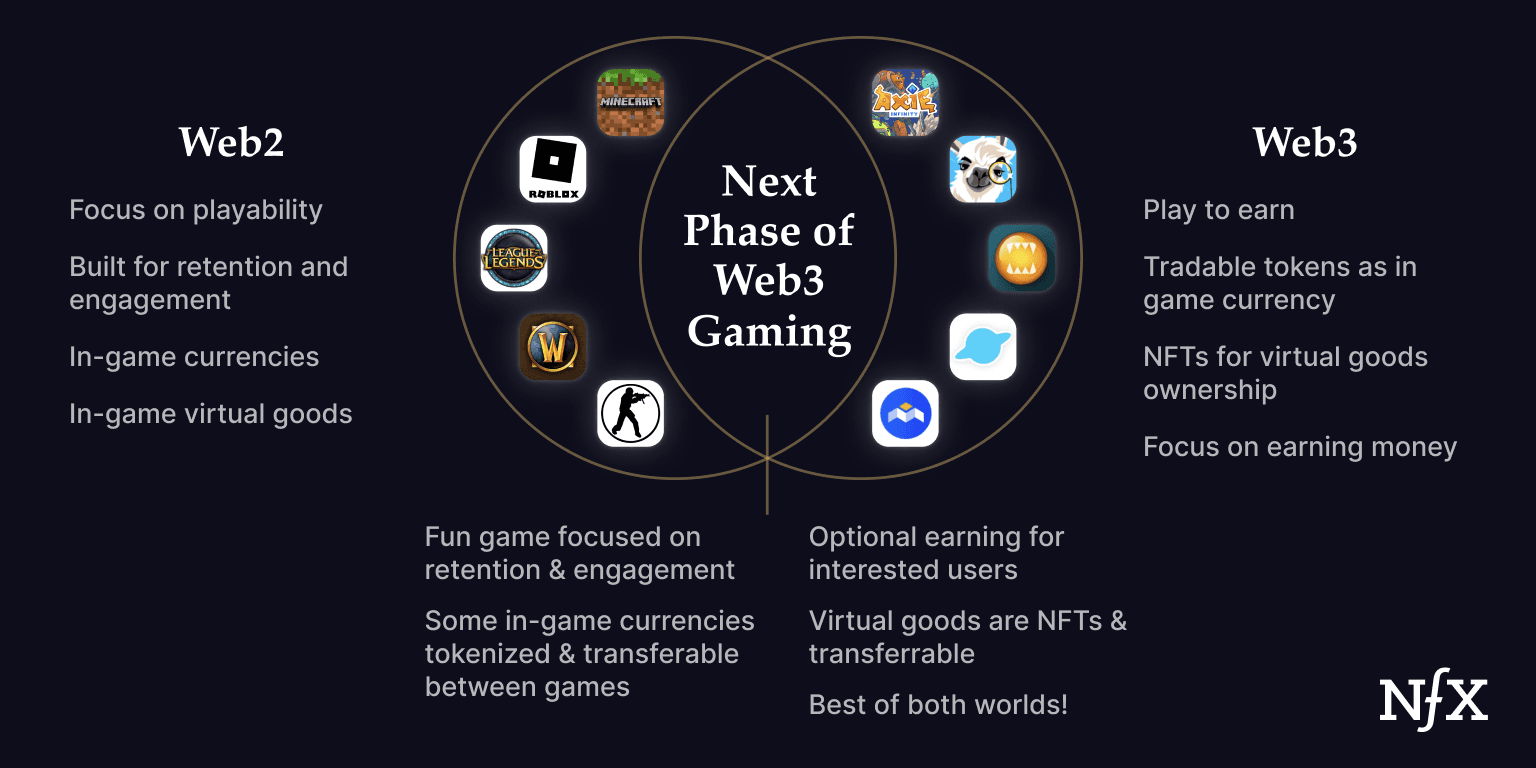The gaming industry has come a long way since the days of Pong and Space Invaders. Today, gamers can play immersive games with stunning graphics, rich storylines, and complex gameplay mechanics. However, there is still room for improvement, and that's where Web3 comes in.
What is Web3?
Web3 is the next generation of the internet, where decentralized applications (dApps) are built on top of blockchain technology. This allows for greater transparency, security, and ownership of data. Web3 also enables new types of interactions between users and applications, such as peer-to-peer transactions and smart contracts.

How is Web3 changing gaming?
-
Web3 is changing gaming in several ways. First, it allows for true ownership of in-game assets. In traditional gaming, players may spend real money on virtual items, but they don't truly own them. With Web3, items are stored on the blockchain, and players have complete ownership over them. This opens up new possibilities for trading and selling items, creating a new type of gaming economy.
-
Second, Web3 enables true interoperability between games. In traditional gaming, each game is a separate entity with its own economy and items. With Web3, games can be built on top of a shared blockchain, allowing for items and currency to be used across multiple games. This creates a new type of gaming experience, where players can take their items and currency from game to game.
-
Third, Web3 allows for decentralized game development. Traditional game development is a centralized process, where a small group of developers control the game's direction and content. With Web3, anyone can contribute to the development of a game, whether it's through creating assets or contributing to the game's codebase. This creates a more democratic and inclusive game development process.

Examples of Web3 gaming projects
There are already several Web3 gaming projects in development. One example is Axie Infinity, a game where players collect and battle creatures called Axies. Axies are stored on the Ethereum blockchain, giving players true ownership over them. Another example is Decentraland, a virtual world where players can buy, sell, and build on virtual land. Decentraland is built on top of the Ethereum blockchain and uses its own cryptocurrency, MANA.


The future of Web3 gaming
The future of Web3 gaming is bright. As more projects are developed and more players enter the space, we will see new types of games and gaming experiences emerge. We will also see new types of interactions between players and games, such as true ownership of in-game assets and decentralized game development.

